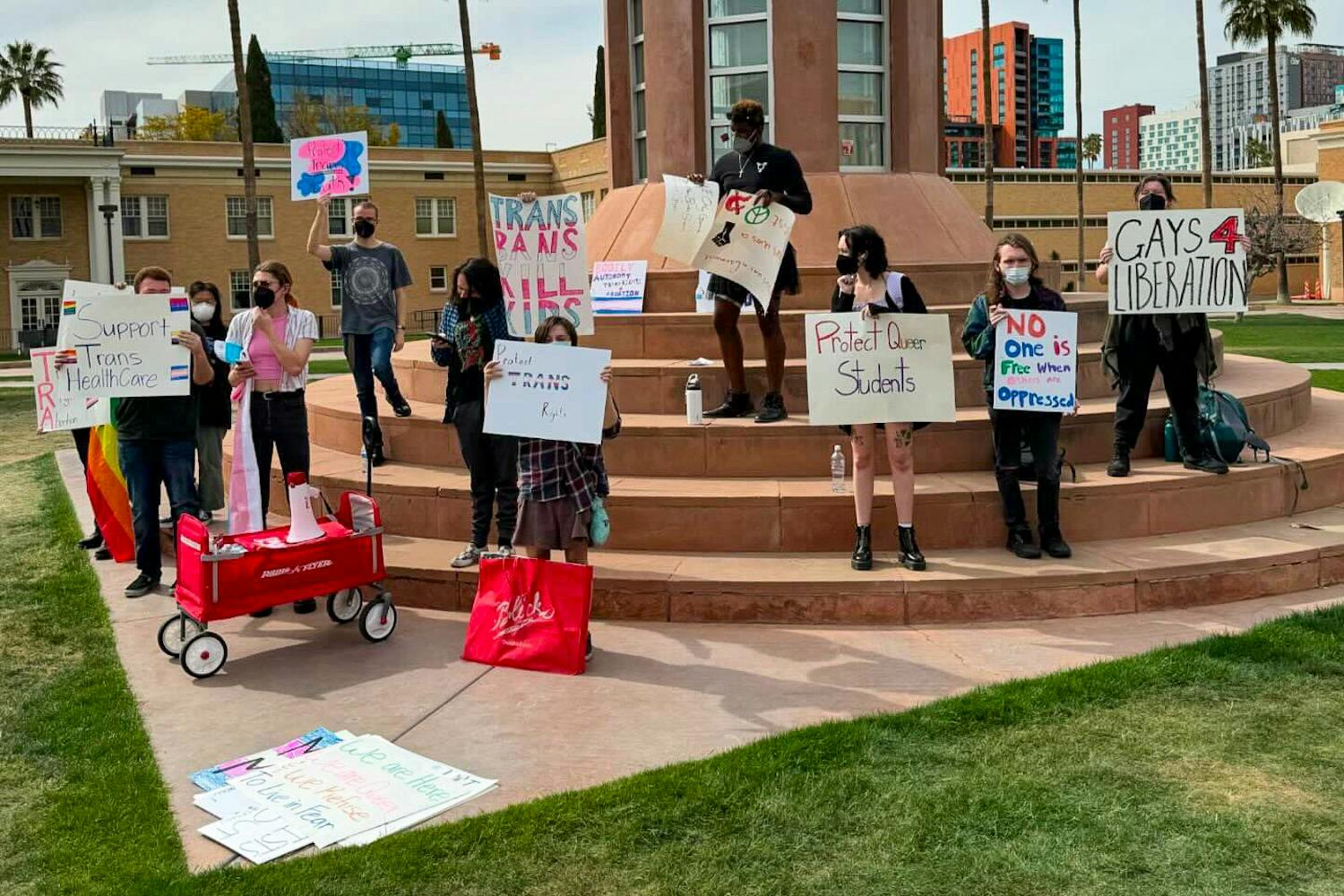Illegal immigrants in Arizona could be eligible for in-state tuition status at public universities pending the outcome of an ongoing review by the Arizona Board of Regents.
The review comes “in light of the Board’s strong desire to facilitate access to higher education for all students within the constraints of applicable law,” said ABOR spokeswoman Katie Paquet in a statement.
As of Aug. 15, President Barack Obama’s Deferred Action for Childhood Arrivals program allows illegal immigrants who were brought into the U.S. as minors and who are younger than 31 to apply for a two-year work permit.
Work permits are currently on the list of documents that can be used to establish proof of residence at ASU and UA, but Proposition 300, which was enacted in 2007, prohibits university students who are not U.S. citizens or permanent residents from being eligible for in-state tuition status.
After the federal government began accepting applications for the program, Gov. Jan Brewer said at an Aug. 16 press conference that allowing illegal immigrants with work permits to receive in-state tuition would be a violation of state law.
The Maricopa Community Colleges legal counsel concluded in August that migrants with work permits under the program would be allowed to lawfully receive in-state tuition, according to Maricopa Community Colleges spokesman Tom Gariepy.
According to immigration officials, more than 80,000 applications were received as of Sept. 15.
Accounting senior Veronica Flores-Lopez, the director of the Latino Student Alliance at ASU, said this ruling would affect thousands of illegal immigrant students in Arizona.
“I started crying when I heard that the deferred action program was going to start accepting applications,” Flores-Lopez said. “I am part of a huge community with many undocumented immigrant students whose path in life will be greatly affected by this decision.”
She said she knows many students who have stopped attending ASU and other universities because they could not afford to pay out-of-state tuition.
There were 1,524 illegal immigrant students attending one of the three public universities in the spring 2007 semester, but that number dropped to just 13 by the spring 2012 semester, according to a report from the Joint Legislative Budget Committee.
Arizona Dream Act Coalition founder Daniel Rodriguez said he is hopeful ABOR will allow work permits as an acceptable form of in-state status eligibility.
Rodriguez, a second-year law student, lost his public scholarships and had to begin paying out-of-state tuition when Proposition 300 passed during his junior year.
“My belief is that the universities and educational systems never really wanted to implement (Proposition) 300, so if there is something that they can cling to and get around it, then they may do it,” he said.
He said ABOR’s decision will hinge partly on how much pressure is exerted by Brewer.
Colorado, Georgia and Indiana also charge illegal immigrant students out-of-state tuition, while Alabama and South Carolina have gone even further and banned illegal immigrant students from enrolling in public universities.
Twelve states, including California, Texas and New York, allow illegal immigrants to pay in-state tuition at public universities.
Reach the reporter at npmendo@asu.edu



